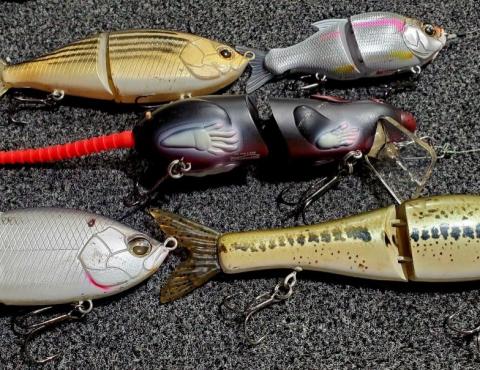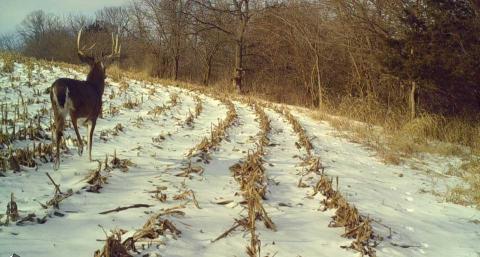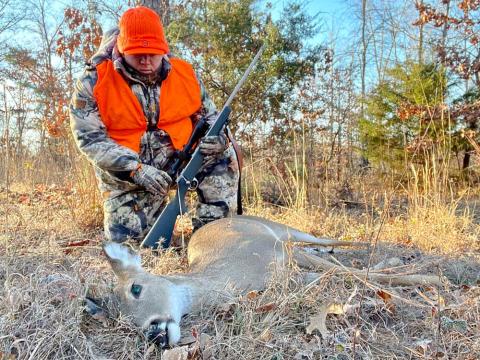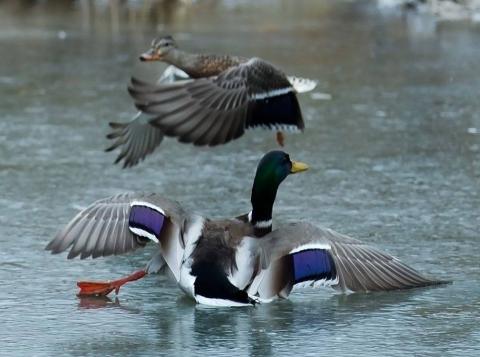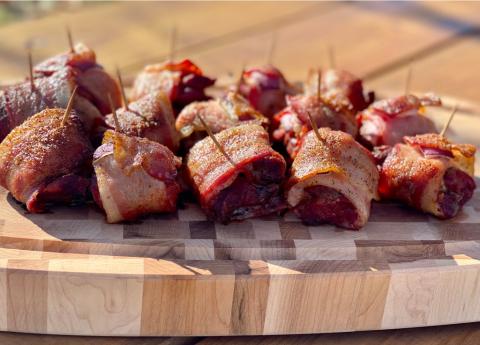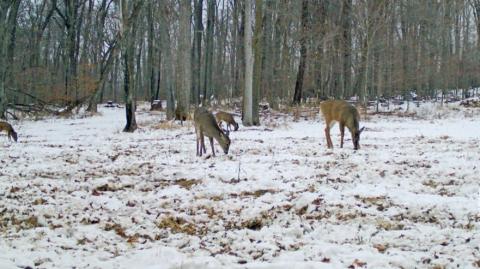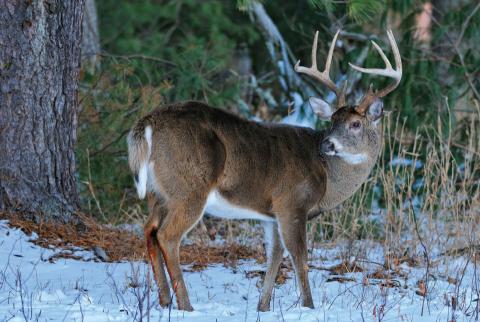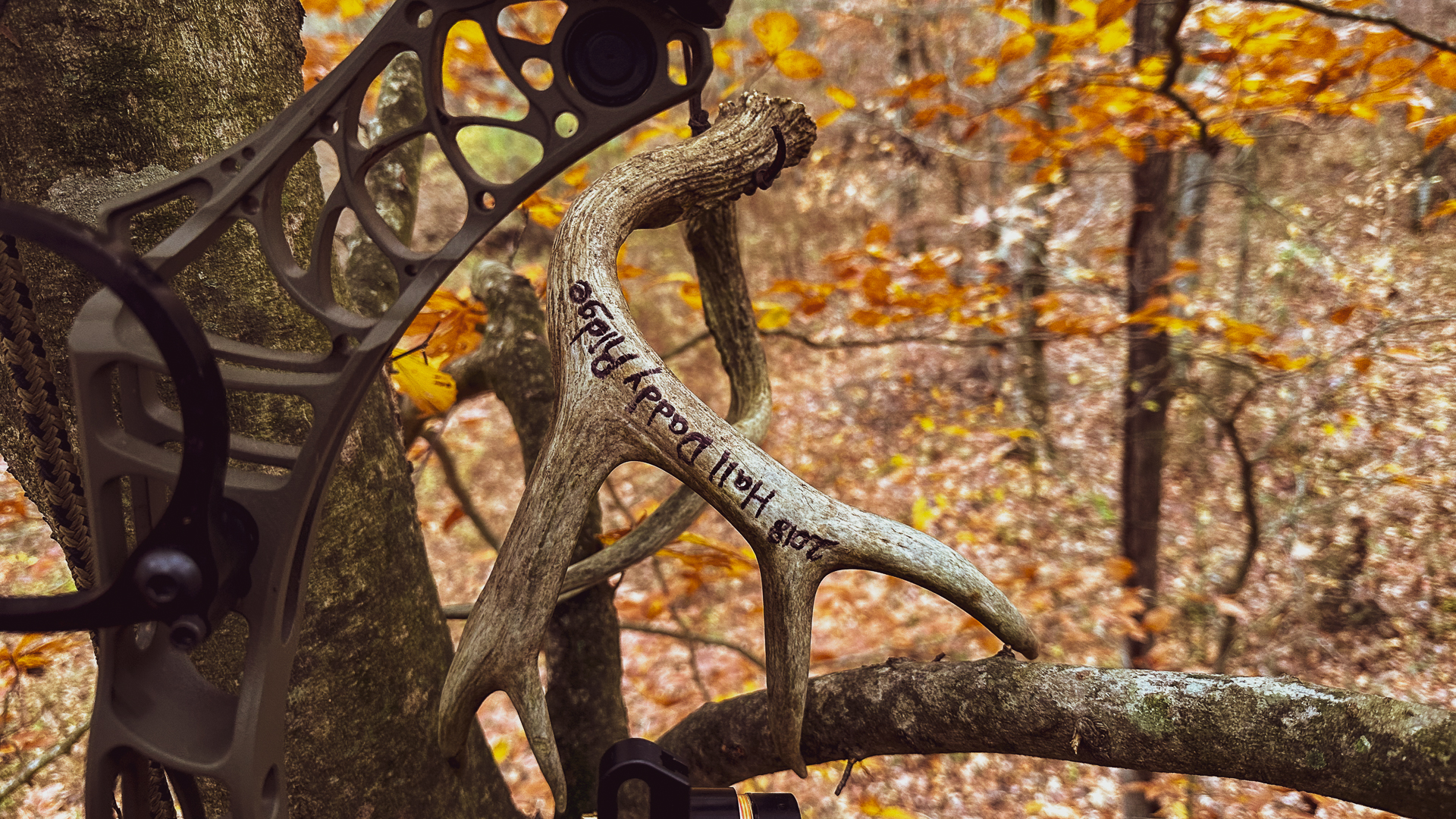provided by John Phillips
The Alabama Adult Mentored Turkey Hunting Program I attended recently had expert help from two Mossy Oak Pros on what equipment turkey hunters needed. Mossy Oak Pro T.R. Pate of Tuscaloosa, Alabama, is the classic example of why there’s a need for an adult mentoring program to learn how to hunt turkeys.
Chris Westen of Gadsden, Alabama, is another Mossy Oak Pro who gave up his Saturday to teach adults the equipment they needed to be successful turkey hunters, and shared his thoughts and beliefs on what helped him become a successful turkey hunter. These Mossy Oak Pros share what they have learned that has helped them become seasoned veteran turkey hunters and learn to help other turkey hunters.
Since turkeys have such keen eyesight, one of the most important aspects of turkey hunting is that the hunter not move when a gobbler’s coming to his or her stand site. Insects are one of the best friends of a wild turkey because mosquitoes buzzing in your ear, horseflies about to bite you, chiggers (red bugs) making you itch and the fear of ticks causing Lyme disease and Rocky Mountain spotted fever will make you move.
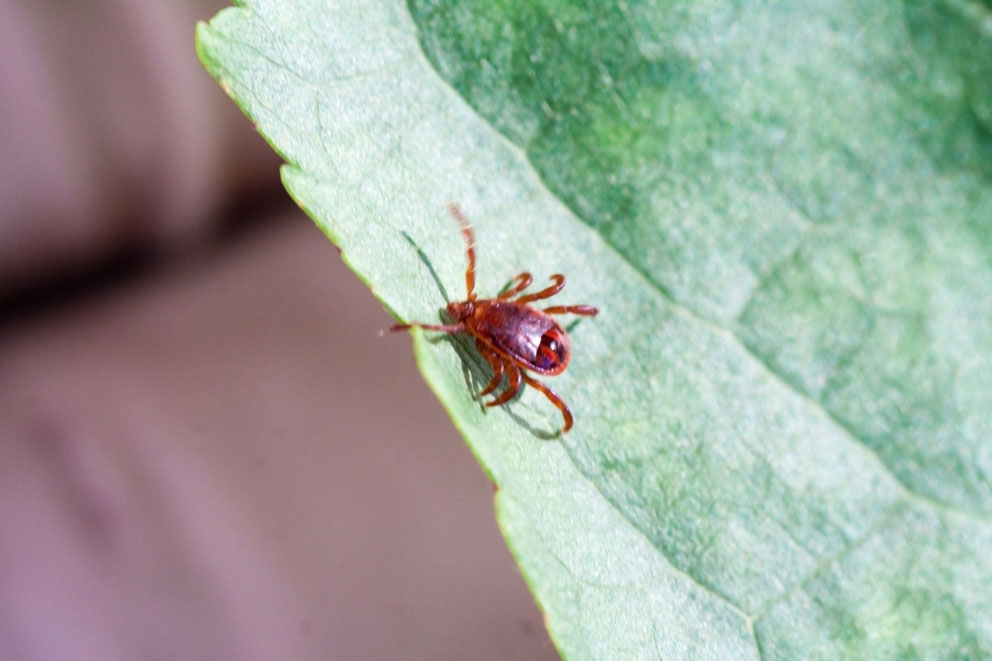
According to Westen:
“Thermacell is a small device you can take with you that consists of a small bottle of butane and a pad that’s soaked with an insect repellent. All you have to do is push the button on the side of the Thermacell to make the little pad of insect repellent on the heating element heat up. The odor that’s expelled keeps mosquitoes, red bugs and ticks away from you. More turkeys are spooked and more hunters are unsuccessful because mosquitoes get inside their headnets and they just have to swat them. Or, he feels a tick run up his leg and he has to scratch it, or a red bug buries its nose into the hunter’s hide. Thermacell solves all these problems and keeps insects and ticks away from you so that you don’t have to move when a turkey is near you, alerting the bird to your presence.”
“Also, gnats can be a problem,” Pate explains. “I carry a little bottle of vanilla spray with me that keeps the gnats away. One of the most important elements of turkey hunting is that you not move when the turkey’s close, and bug repellent is the best way to not have to swat, scratch or itch when you have a turkey coming in to you. You can get vanilla spray at the Dollar Store or at somewhere like Bath and Body Works. Ladies often use it as skin moisturizer, but it also is really good at keeping gnats away.
“Another very effective insect repellent is Permethrin that you can buy at Tractor Supply, Walmart and most sporting-goods stores. You can wash your clothes in it, or you can spray your clothes down with Permethrin, leave them out overnight (when it isn’t raining) and that Permethrin will stay on your clothes through multiple washings. Permethrin is really effective on ticks and red bugs.”
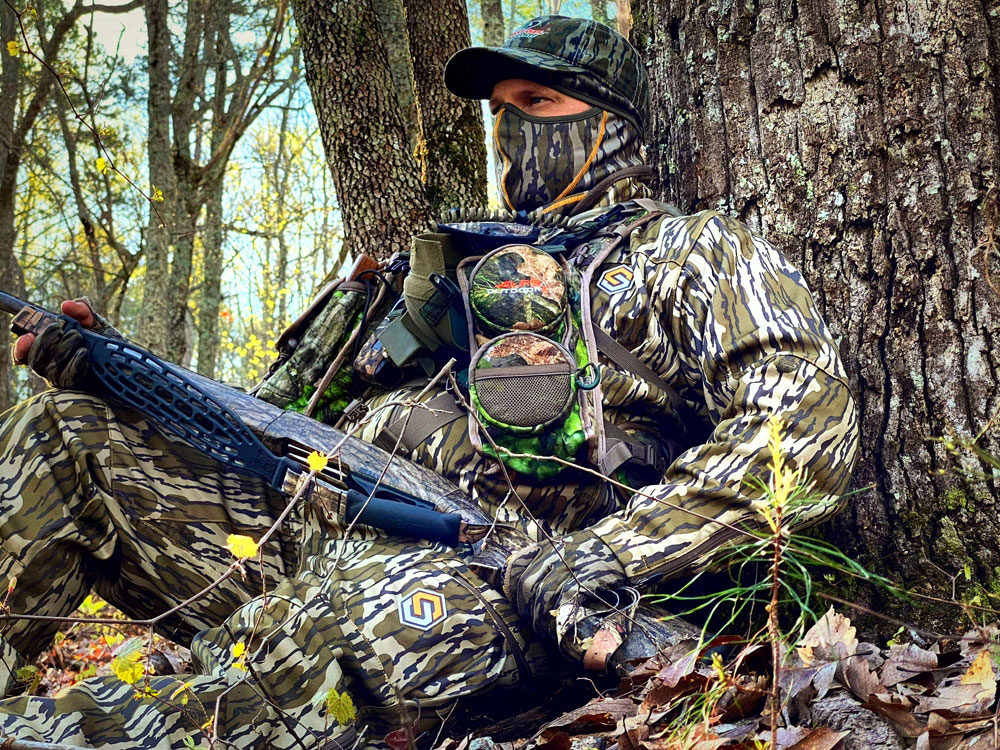
Most of the equipment that a turkey hunter needs, wants or thinks he should have when he goes turkey hunting will be stored or carried in a turkey hunter’s vest.
Most of the equipment that a turkey hunter needs, wants or thinks he should have when he goes turkey hunting will be stored or carried in a turkey hunter’s vest. Make sure the pocket you put your insect repellent in is easy to get to. If the bugs get worse and you need to reapply, you will want to do so with as little movement as possible. Many turkey hunters will wear clothes coated with Permethrin and then spray down with an insect repellent with DEET. Before they put their mask on, they spray it with a vanilla spray and fire up the Thermacell after they are seated. When hunting a swampy area, it takes all this to stay bug-free and remain motionless for long periods of time.
Pate states that a turkey vest is one of the most important pieces of equipment a turkey hunter can have. “That vest will be with him from before daylight — often until after dark. In your turkey vest, you carry your shotgun shells, your various kinds of calls, your full face mask, your gloves, your snacks, your water, your insect spray, your cell phone or GPS receiver and other equipment you may need. Your turkey vest also needs a seat cushion attached to it. Then, when you hear a turkey gobble, all you have to do is drop that cushion down — and, because it’s still attached to your vest, you can reach between your legs and sit down quietly and comfortably to call or wait on a turkey coming to you.
“The ability to sit still is one of the key factors to taking a turkey. Having a comfortable cushion to sit on helps to stop fidgeting and prevents you from having to move because you’ve sat on some big acorns, a rock or roots or in a little puddle of water. Besides bugs, the other reason hunters frequently move when they shouldn’t is because their butts are sitting on something very uncomfortable. A cushion solves that problem. On the back of your vest, you need a turkey toter or a game bag, and you should have a waist band buckle and preferably a sternum strap to keep your vest close to your body and all your equipment easily at hands’ reach. You’ll need extra chalk for chalking your box calls and your push calls and you may need some mouth calls and a cigarette lighter to start a fire if needed. I carry locator calls, too, like crow and owl calls. These locator calls and shock calls will cause a turkey to gobble and let you know where he is. Too, if you’re moving in on a turkey, especially after he’s left the roost, you need to know where he is after he’s left the roost, and a shock call often will make that turkey gobble.”
Westen mentions that, “Any loud nose in the woods, especially a natural noise like a pileated woodpecker, a crow or an owl calling, often will make a turkey gobble. By knowing where a gobbler is located, you can better determine where you need to move to set up to call to that turkey. I personally don’t use locator calls, but most turkey hunters do and they are very effective. Locator calls can be a tremendous help when you are trying to determine exactly where the gobbler is, and what route you need to take to get close enough to call him, but not so close that you’ll spook him.”
Keep the Bugs Off and a Good Turkey Vest on
It pays to use all the tools available to you to keep the bugs off when turkey hunting — especially if you are hunting in tall grass or wooded areas. Combining Permethrin, insect repellents with DEET, natural insect repellents like vanilla spray and a Thermacell can keep bugs at bay. You can remain motionless while other hunters are swatting bugs. You can also avoid a tick bite from the dreaded deer tick that is known to carry Lyme disease, Rocky Mountain spotted fever and other tick-borne diseases.
Keep your insect repellent and Thermacell stored in an easy to find pocket of your turkey vest. A good turkey vest with a fold-down pad to sit on and easy to find pockets is invaluable. It doesn’t make sense to go to so much trouble to keep ticks off you, only to find you need to move around to keep your seat-end from going to sleep. When you can keep bugs off your body and stay comfortable, you are going to have a great day in the turkey woods.
















